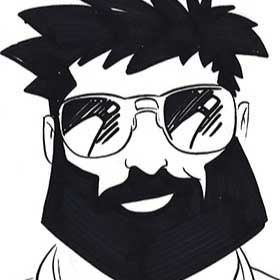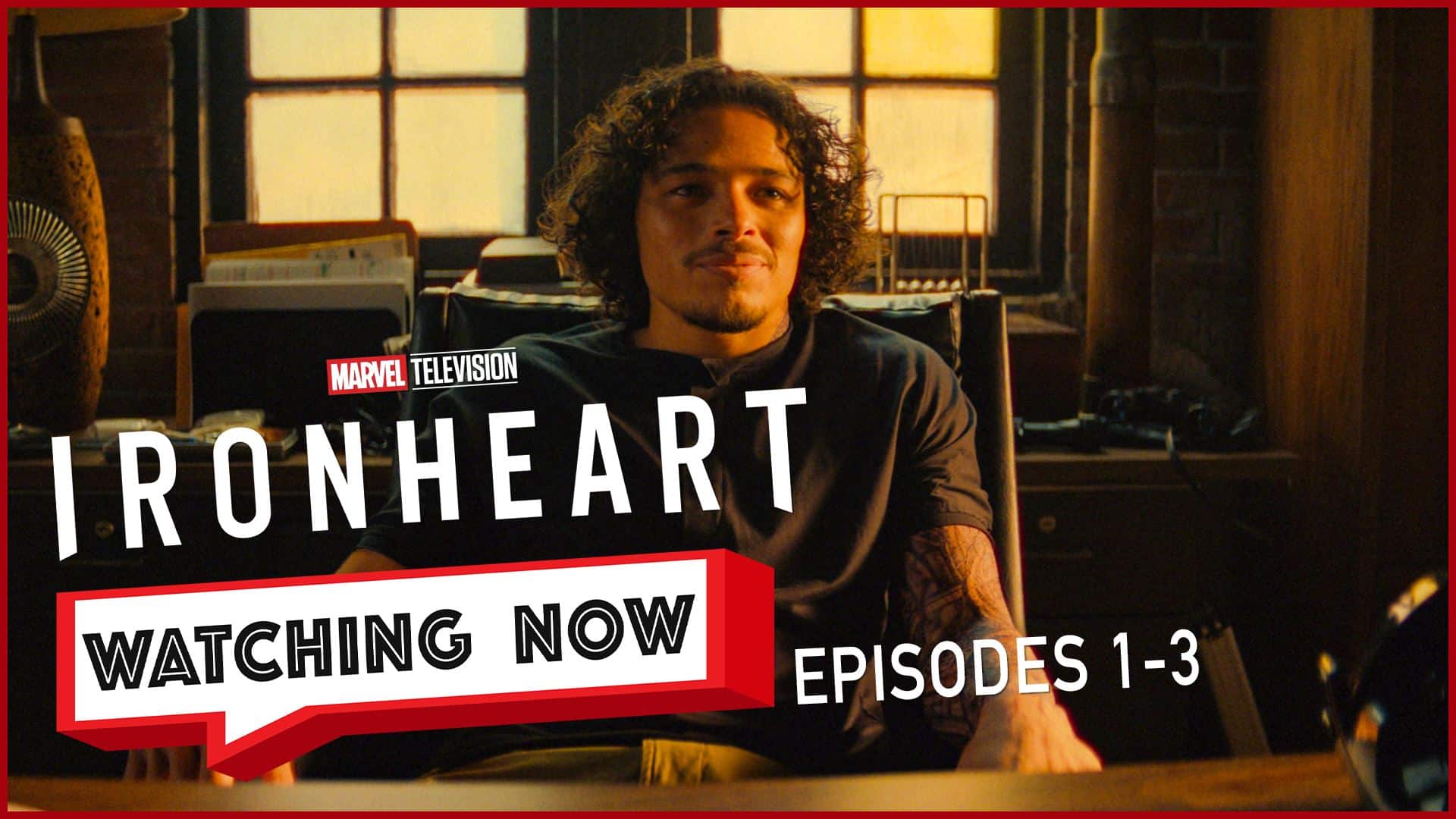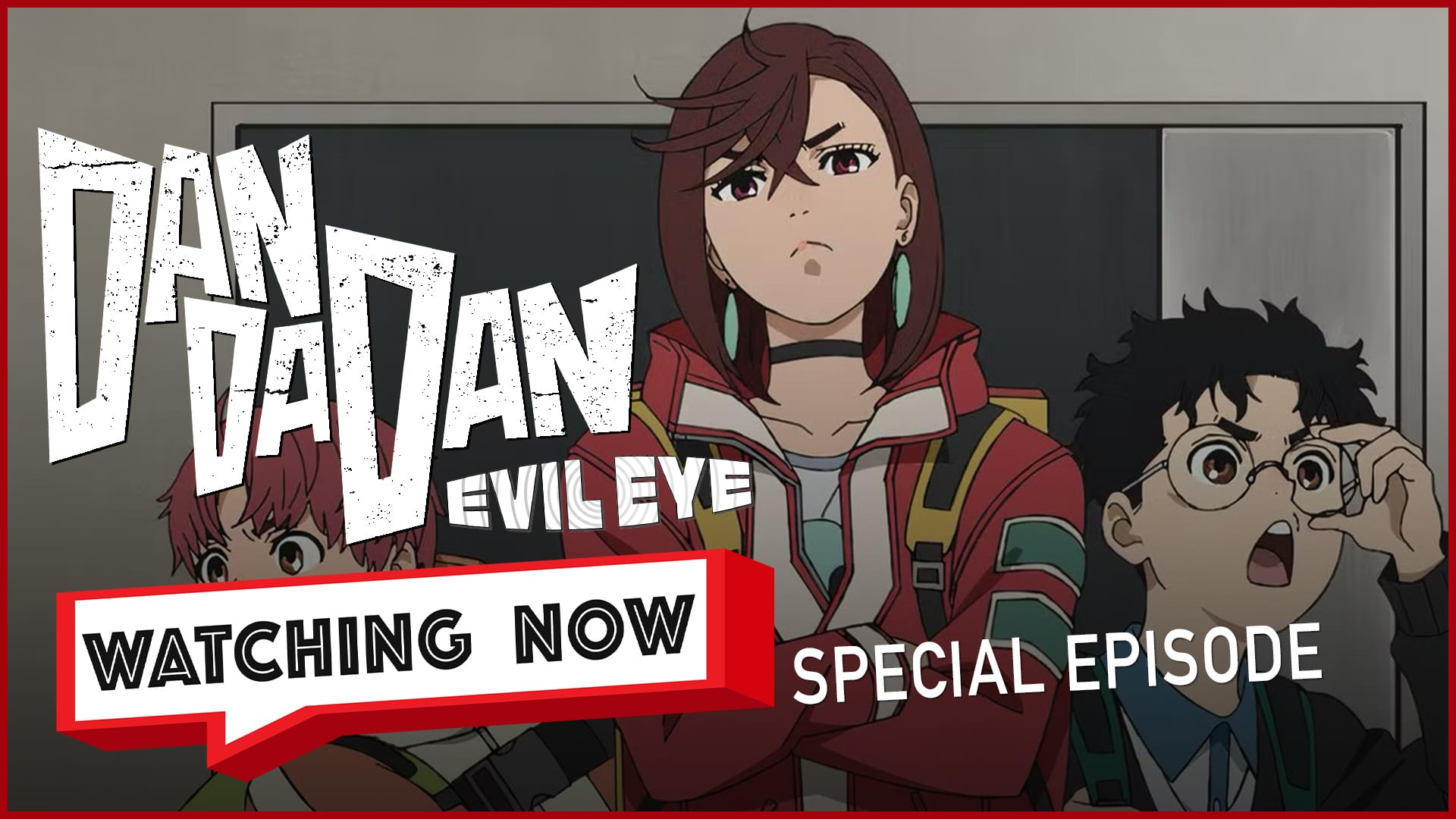- Home
-
Games
-
Movies & TV
-
Videos
- Comics & Books
- Podcasts
- Store
- Who We Are
- ---
- Login
- Account
- Our Circle
- Contact Us
- ---
- WANT TO CONTRIBUTE?
- Privacy Policy
- Terms of Service
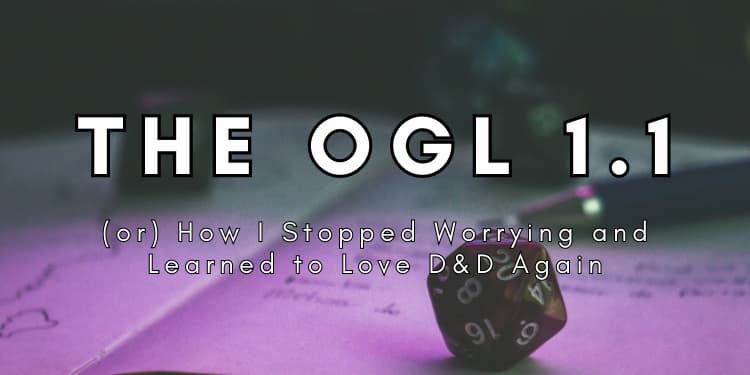
January 19th, 2023, will always be a memorable date in my life regarding my relationship with Dungeons & Dragons. It was the day that Wizards of the Coast released a statement that the beloved tabletop role-playing game Dungeons & Dragons would be unleashing its intellectual property to the public under the Creative Commons license. The battle leading up to that decision was long and arduous, and many content creators (including myself) were ready to all-out boycott the beloved game after controversial decision after decision came to light. However, to understand where we are now, we need to look back at where it all began.
Wizards of the Coast introduced the Open Gaming License in 2000 to enable third-party developers to create new content for D&D without violating copyright laws. This gave players and content creators carte blanche on homebrewing anything they wanted. It added a freedom to players and Dungeon Masters (DMs) who wanted a means to express themselves creatively through their own machinations. It enabled games to be customized to the liking of the players and also gave an opportunity for creators to publish their ideas and possibly make a little bit of money at the same time by selling their creations online. Sites like DM’s Guild and Drive Thru RPG created a marketplace that streamlined instant access to this new content.
The OGL proved transformative for the TTRPG industry, giving rise to a wealth of new content and game systems. Independent creators and small publishers embraced the opportunity to develop their own D&D-compatible materials, leading to innovative products catering to various play styles and settings. In addition, the OGL paved the way for other game systems, such as Pathfinder by Paizo Publishing, which gained significant popularity as an alternative to D&D.
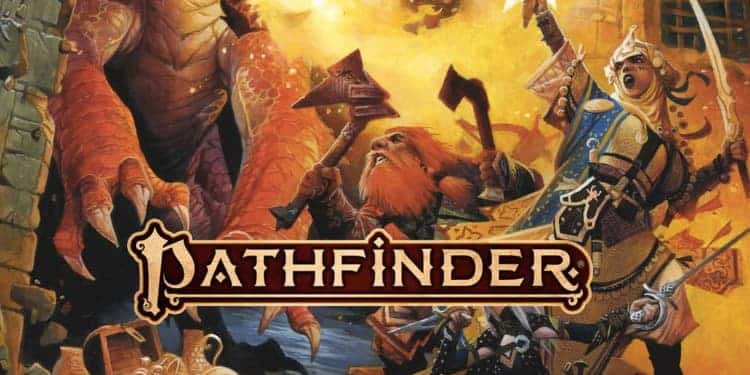
For a long time, there was peace among the D&D communities. Actual play streams, content creators, and the casual gamer never paid any mind to what was going on behind the scenes in the offices of Wizards of the Coast. There was no reason for anyone to think that their beloved game was going to become tampered with in a way that created a revolt. At the time, I was developing and producing my own actual play content for Twitch and YouTube. TikTok was opening my eyes to new tabletop games and fantastic and entertaining D&D content creators like Ginny Di. My Discord servers practically had me playing a game a night with people from all across the world. It was the height of my TTRPG involvement. Then, from out of nowhere, it almost came to an immediate halt when the news hit.
The release of the leaked draft of the OGL 1.1 in 2022 via an article written by Linda Codega on Gizmodo lit the powder keg that had already been ready to blow after disastrous PR from Wizards of the Coast when executives from Hasbro discussed the possibility of implementing things like microtransactions into D&D after the acquisition of D&D Beyond. The proposed changes in the draft were seen as a step back from the original vision of the OGL, with stricter restrictions on the use of copyrighted material and the potential for Wizards of the Coast and its parent company, Hasbro, to exercise more control over third-party content.
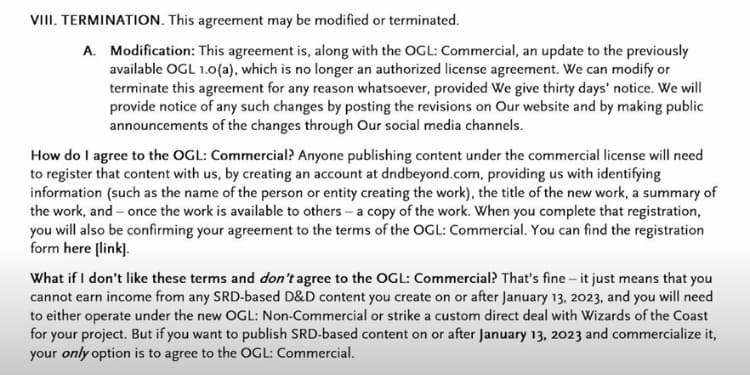
When it was leaked, I was shocked. For the longest time, Wizards of the Coast had built up a trust with me as a customer. I happily used their sourcebooks and online tools without any second-guessing of their ulterior motives. Seeing the documents felt like a betrayal. Like many other TTRPG players, especially ones who play D&D, I took it personally. It felt like I was being tricked for the entire duration of my relationship with the game.
Soon after, I found out that I was not alone in feeling this way. Creators all across the spectrum of social media as well as prolific third-party content creators for D&D were calling for an immediate boycott. I watched an organized revolution unfold before my very eyes and in real-time as gamers answered the call by cutting ties with Wizards of the Coast in any way they could. Since the most effective way to send a message was with the company’s bottom line, subscribers to D&D Beyond (including myself) dropped their subscriptions en masse. The pressure was on, and the tide was turning. A message was being sent by a group of people to a corporation that their gaming way of life would not be messed with and that the community was stronger than the IP.
In a surprising move, Wizards of the Coast recently announced that the Open Gaming License would be placed under a Creative Commons license. This change effectively broadens the range of materials available to creators and opens up new possibilities for collaboration and sharing within the TTRPG community. I and many others saw this as a real win. Our voices were heard. Our actions were taken seriously. It was empowering.
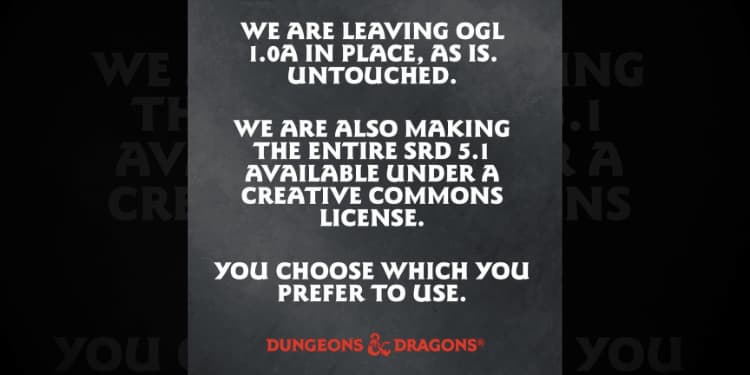
The aftermath felt like a rare victory for someone in my generation. The awareness of how billion-dollar corporations like Hasbro can manipulate and try to secretly take away a foundation of a property meant to be used by its consumers as they see fit was enough motivation for a collective to come together and have a result that actually worked. Our voices were heard, action was taken, and in the end, the fans won. There was an amazing ripple effect of fans becoming aware of new games, new systems to play, and aligning themselves with each other, much like an adventuring party to take down the villain. It gave a new appreciation to the game and its impact and hopefully sent a message to the developers that their audience is not so easily tricked. They tried to roll deception and critically failed. Now the game is open for all to make new worlds and new stories without the feeling of being told how to play by an invisible entity.
If you’re a D&D or TTRPG player, what was your experience like following the saga of the OGL? Share your stories in the comments!
